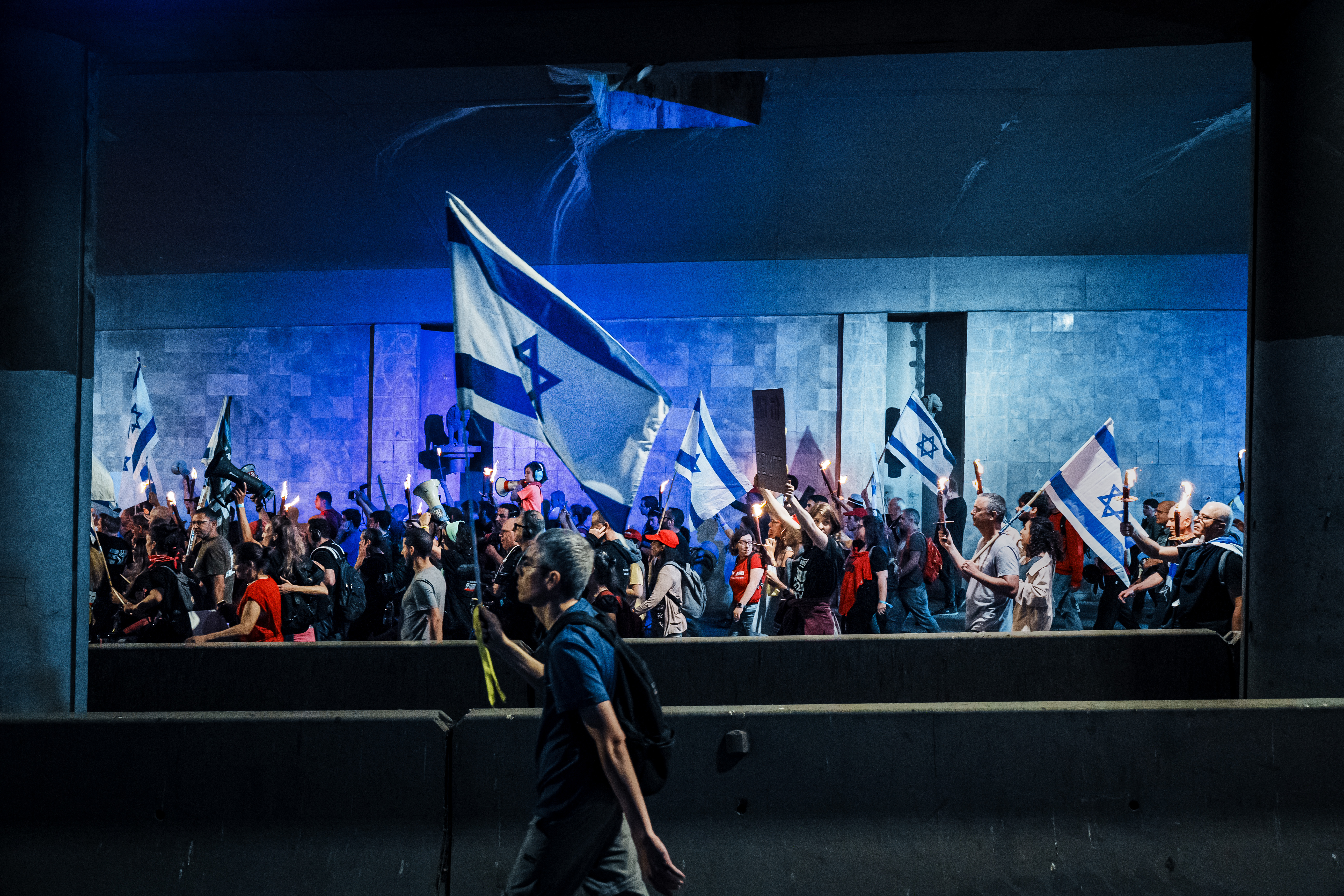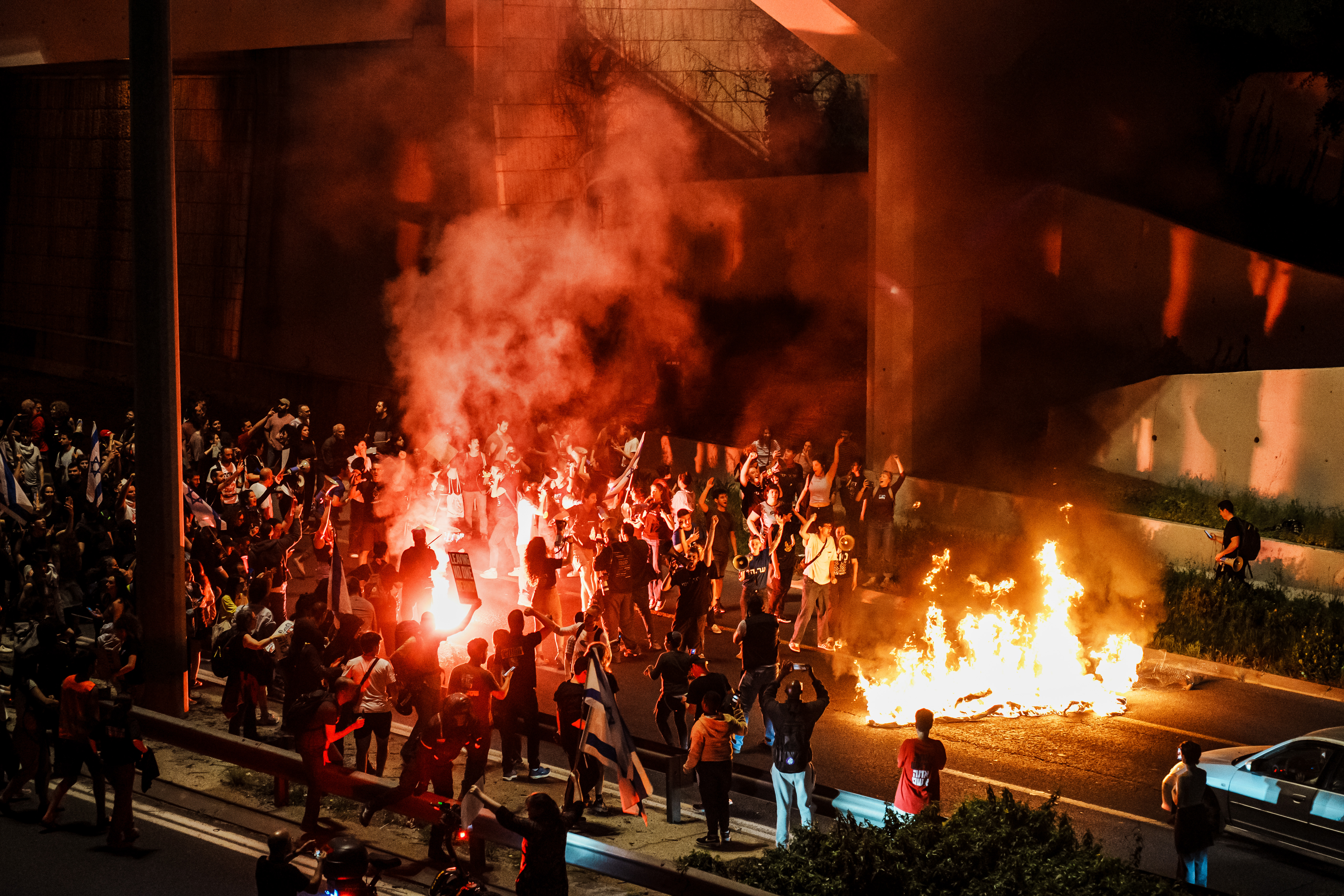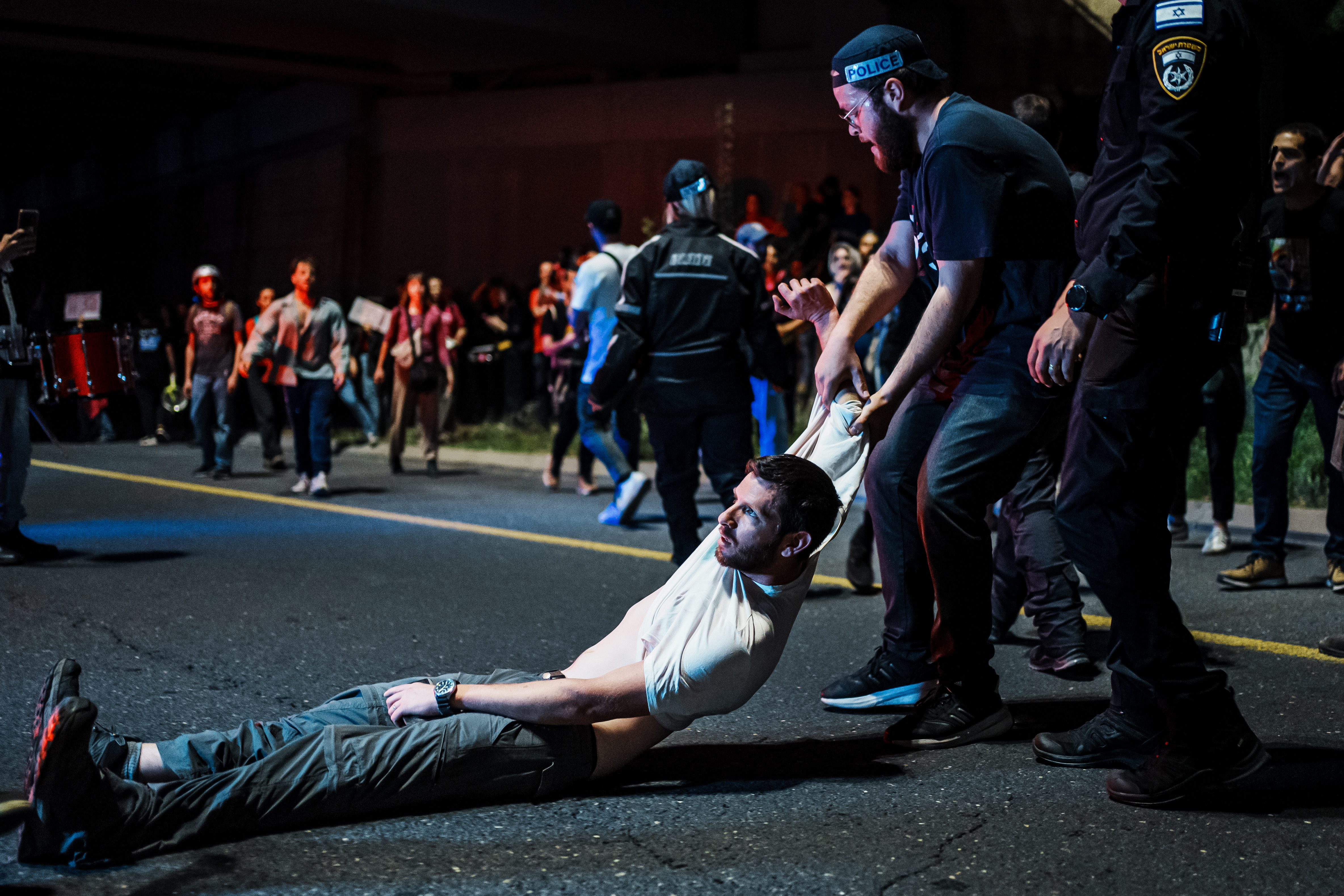Israel’s Netanyahu is a political survivor. Could the war in Gaza finally be undone?
Tracy Wilkinson Marcus JamApril 3, 2024
Massive street demonstrations that posed the gravest threat yet to Prime Minister Benjamin Netanyahu last year, then calmed down after October’s elections. 7 attack
S
, have returned in full force. Tens of thousands of Israelis are once again filling the nights in Jerusalem and Tel Aviv with calls for Netanyahu’s resignation.
But now that the context is different, with Israelis and Palestinians locked in a fierce war, have Netanyahu’s chances for political survival also changed?
The Houdini of Middle Eastern politics must now escape from forces closing in on multiple fronts: left, right, ultra-Orthodox religious, the business community, even some families of Israeli hostages captured by Hamas militants.
And this time, Netanyahu has less ability to rely on US support as he becomes embroiled in an unusually bitter, unusually public feud with the Biden administration.
Anyone who has studied Israeli politics for more than two seconds knows that Netanyahu, Israel’s longest-serving prime minister, has managed to survive a long series of seemingly career-ending crises. For example, his last election in 2022 came at a time when he was on trial for numerous corruption charges. Betting against him is, as one commentator puts it, like betting against the house.
Yet the pressure on Netanyahu is now more intense than ever before. The protesters’ demands include immediate elections aimed at dumping Netanyahu and his radical right coalition government, something the prime minister said would be dangerous during a war.

Calling for elections now, just before victory, would paralyze Israel for at least six months, Netanyahu said recently.
this
weekend.
3/30
It would paralyze the negotiations for the release of our hostages, it would end the war before its objectives are fully achieved, and the first to welcome this is Hamas, and that says it all.”
While last year’s then-unprecedented demonstrations were sparked by Netanyahu’s attempts to weaken Israel’s judiciary, today’s added fuel is the government’s inability to free the hostages and what many see as a mishandling of the war in the Gaza Strip. The conflict has been dragging on for almost six months and has cost the lives of more than 200 Israelis and more than 32,000 Palestinians, the majority of whom are women and children. Israel launched its offensive in retaliation for the October attacks. 7
attacks cross-border attack
killing about 1,200 people in southern Israel.
Meanwhile, protest rallies on the streets of Jerusalem and Tel Aviv have grown in size since Saturday evening to include tens of thousands of people, many chanting or waving signs saying “Netanyahu is guilty” and “Free our country.”

On a street corner in Jerusalem, near the Knesset, or parliament, stood a larger-than-life model of a blue ballot box with an imitation ballot that read: “Change of direction. And in an unusual act for Israel, several hundred protesters set up a tent city in the heart of the holy city.
I believe that both the Israeli people and the Palestinian people are being held hostage by horrible leadership,” said Elana Kaminka, a 49-year-old California resident whose son, an officer in the Israeli army, was killed in the first Hamas attack. She joined the demonstration in Jerusalem: ‘This government is dangerous. … This government is acting against the interests of the Israeli people. And the Palestinian people.”
There are two elements that distinguish the new wave of protests from that one
by
last year. One of these is the presence of relatives and supporters of some of the hundred or so hostages in Gaza. Many thought early on that this was not the time to challenge the government, which was engaged in negotiations to free the men, women and children. Now, after months of desperate frustration, many
But
not everyone has given up that fear and joined the rallies and marches.
The second is represented by a group called Brothers in Arms, reserve army soldiers and officers who oppose Netanyahu and especially his efforts to allow ultra-Orthodox men to avoid mandatory military service. Last year, several senior retired officers joined the opposition against Netanyahu, but the number has increased.

Nir Shaish, a former paratrooper who fought in one of Israel’s wars with Lebanon, joined Tuesday’s demonstration mainly to demand that the government “pay the price” to bring the hostages home. But the question of religion is avoided
ing
military service mandatory for all Israeli citizens, men and women, intensified his anger.
A law that would require conscription for ultra-Orthodox men was expected to come into effect this week
haredim
, which have largely avoided such services until now. Several ultra-Orthodox men are in Netanyahu’s coalition government and threatened to walk away if the law was passed. It has been put on pause for the time being.
The ultra-Orthodox “say prayers save more than someone in the military unit,” Shaish said. “We want them to participate in military service. Equal rights [means] equal duties.”
Like the vast majority of Israelis, Shaish, 65, said he initially believed this was justified. But now, he said, it is being used by Netanyahu as a “tool for survival.”
Opinion polls show that Netanyahu is deeply unpopular, and that faith in his credibility and his handling of the war is waning.
Even as his domestic support plummets, Netanyahu has tested the loyalty of Israel’s strongest ally, the US government.
He has consistently rejected or ignored the advice and warnings of senior US officials on how to conduct the war
theirs
pleas for prevention
prevent
civilian casualties as Israeli bombs kill thousands of non-combatants, including aid workers and journalists.

He embarrassed Secretary of State Antony J. Blinken by announcing the largest Jewish settlement project in years in the West Bank while Blinken was in Israel trying to revive diplomacy. Most of the world views such settlements built on land considered illegal by Palestinians, and the Biden administration has repeatedly urged an end to them.
Last week
3/25
When the US took the highly unusual step at the United Nations of passing a resolution calling for an immediate ceasefire, Netanyahu threw a fit. Israel is against an immediate ceasefire, as was the US until recently.
And when Benny Gantz, a more centrist member of Israel’s so-called war cabinet, announced he would be making a trip to Washington for official meetings, Netanyahu ordered him to cancel. Gantz went anyway and was warmly greeted by senior U.S. officials, including the secretaries of Defense and State. The
Biden
The government seemed keen to underline that there are alternatives to Netanyahu.
Analysts said Netanyahu is deliberately acting to antagonize the Biden administration as a distraction from a war that, apart from nearly destroying large parts of the Gaza Strip, has taken a huge economic and psychological toll at home. If so, it’s a risky bet
since
Israel is heavily dependent on Washington for weapons, money and other support.
“The factors that could lead to early elections in Israel are multiplying and strengthening,” said Nimrod Goren, writing for the Middle East Institute in Washington, including “messages from top US officials that change is needed in Israel.”

Even if the current government falls and new elections are held, it remains unclear what difference a new government would make. Or what that would mean for Netanyahu. Israel had five elections in four years and almost always ended up with Netanyahu.
As Goren noted, “Netanyahu’s skills at political survival should not be underestimated. In previous times of potential political crisis, Netanyahu has repeatedly demonstrated his ability to take control of political events.”
Wilkinson reported from Washington and Yam from Jerusalem.
Fernando Dowling is an author and political journalist who writes for 24 News Globe. He has a deep understanding of the political landscape and a passion for analyzing the latest political trends and news.



